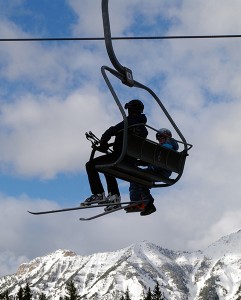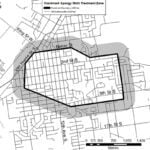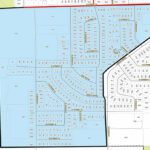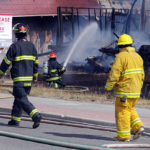Home »

Roadmap for tourism as economic driver launched

A new strategic framework, launched at the annual Tourism Industry Conference earlier this month will guide year-round tourism growth that benefits people and communities, while protecting British Columbia’s natural environment.
The industry has proven itself as an economic force in B.C., with nearly 6.1 million international visitors from around the globe choosing destinations throughout the province last year – a new record and an increase of 6.4% over 2017.
This framework, entitled ‘Welcoming Visitors, Benefiting Locals, Working Together: A Strategic Framework for Tourism in British Columbia,’ outlines government’s vision for continued, sustainable growth in B.C. tourism.
“People from all over the world are discovering all that our beautiful province has to offer and are taking those memories back home with them, ” said Lisa Beare, Minister of Tourism, Arts and Culture. “With diverse vacation opportunities like wildlife viewing, storm watching and world-class festivals, every corner of B.C. offers a unique, once-in-a-lifetime experience. We want to see this momentum continue to build, and that’s why we launched this new strategic framework. We’re making sure the tourism industry’s benefits are shared with people and communities throughout the province, throughout the year.”
In conjunction with the Tourism Industry Association of BC’s conference, Destination BC released the 2017 Value of Tourism Snapshot.
The snapshot shows that in 2017, B.C.’s tourism industry generated $18.4 billion in revenue – up 8.4% over 2016, and 41.3% since 2007.
The tourism industry contributed $9 billion to the B.C. economy, as measured through gross domestic product (GDP) in 2017. This is an increase of 6.7% over 2016, compared to the GDP of B.C.’s economy as a whole, which grew by 4.0% in 2017.

These statistics show that B.C.’s tourism industry added the largest value to the provincial economy between 2007 and 2017, relative to primary resource industries, such as oil and gas, mining, forestry and logging, and fishing.
B.C.’s tourism economy will continue to be supported through marketing and destination development.
The recent provincial budget included an increase of $1 million to Destination BC for the next three years. This increase will allow Destination BC to continue to promote B.C. to international and Canadian visitors in order to develop and grow that industry.
“Over a 10-year period, tourism contributed the largest added value to the B.C. economy, relative to other primary resource industries. As an industry, this is something we can all be immensely proud of. And by all accounts, 2019 is going to be another strong year for tourism across the province – bringing jobs and opportunities to communities across British Columbia. As B.C.’s tourism marketing organization, we look forward to working closely with Minister Beare, ministry staff and British Columbia’s vibrant tourism industry to implement the new strategic framework,” stated Marsha Walden, CEO, Destination British Columbia.
2017 Value of Tourism Snapshot

In 2017, more than 137,000 people were employed in B.C. directly due to tourism expenditures, an increase of 3.6% over 2016.
In 2017, the tourism industry paid $4.9 billion in wages and salaries, an increase of 6.9% over 2016.
B.C. had 19,243 tourism-related businesses in operation, an increase of 0.4% over 2016.
In 2017, the largest increase driving gross domestic product from tourism was in transportation and related services, which increased 9.7% over 2016.
Tourism supported over 19,000 businesses and employs almost 138,000 British Columbians, an increase of 6.9% over 2016.
Tourism generated provincial tax revenue was $1.2 billion in 2017, an increase of 5.8% from 2016.
In 2017, tourism export revenue generated $5.4 billion in revenue for B.C., an increase of 7.1% over 2016.
Note: Tourism export revenue is derived by Destination BC from Statistics Canada’s International Travel Survey.
Lead image: Kimberley Alpine Resort image
e-KNOW







